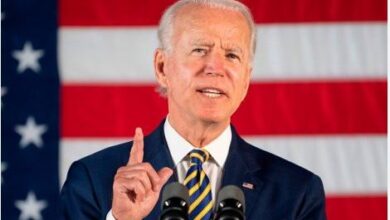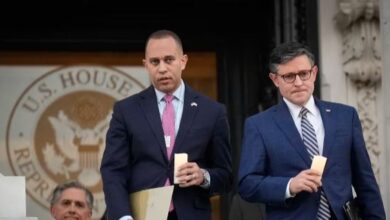Navigating Through Uncertainty: The Impact of Global Political Tensions on Economic Forecasts

In a world where political landscapes are as volatile as the stock market, global economic forecasts have become increasingly intertwined with geopolitical developments. Recent tensions in key regions are not just headline news but pivotal factors influencing economic predictions, trade dynamics, and investment strategies worldwide.
The Ripple Effect of Geopolitical Tensions
At the heart of the matter are several geopolitical hotspots, each contributing to a climate of uncertainty that has financial analysts and policymakers on high alert. From the ongoing trade disputes between major economies to regional conflicts and the specter of sanctions, the global marketplace is under the shadow of unpredictability.
Trade and Investment: A Cautionary Tale
Trade relations, especially, have felt the brunt of this uncertainty. Tariffs and trade barriers, often used as political tools in these disputes, have disrupted supply chains and inflated costs for manufacturers and consumers alike. The technology sector, heavily reliant on a global supply network, has seen significant volatility, prompting companies to rethink their supply chain strategies.
Investment flows, too, have been affected, with investors increasingly cautious about placing bets in regions perceived to be at higher risk of political upheaval. Emerging markets, in particular, have experienced fluctuations in foreign direct investment (FDI), as capital seeks safer havens.
Market Stability in the Balance
The interplay between politics and economics is nowhere more evident than in the realm of market stability. Stock markets react almost instantaneously to political news, underscoring the sensitivity of financial markets to geopolitical events. Currencies, too, bear the brunt, with those of politically unstable countries often depreciating against the backdrop of uncertainty.
The Forecasting Challenge
Economic forecasting in such times becomes a complex task. Analysts must factor in not just economic indicators but also political developments, making predictions all the more challenging. The International Monetary Fund (IMF) and the World Bank, among others, have highlighted the role of geopolitical risk in their economic outlooks, adjusting growth forecasts in light of potential political upheavals.
Looking Ahead: Adapting to a New Normal
In response to these challenges, businesses and governments are adapting their strategies. Diversification—both in terms of markets and supply chains—has emerged as a key tactic in mitigating risk. Likewise, financial markets are increasingly factoring in political risks in their investment decisions, with some turning to alternative investments as a hedge against geopolitical uncertainty.
The Silver Lining: Opportunities Amidst Uncertainty
Despite the challenges, geopolitical tensions also present opportunities. Countries and regions seen as politically stable are attracting more investment, and sectors like renewable energy are benefiting from increased geopolitical interest in sustainability and energy independence.
As the global community navigates through these tumultuous times, the interconnection between political events and economic outcomes has never been clearer—or more significant. Understanding this dynamic is crucial for policymakers, investors, and businesses alike as they seek to forecast and adapt to the ever-changing global economic landscape.
In a world where tomorrow’s economic forecast is as much about political developments as it is about financial indicators, staying informed and agile is paramount. The intersection of global politics and economics is a challenging terrain, but it is also a testament to the resilience and adaptability of the global market.





